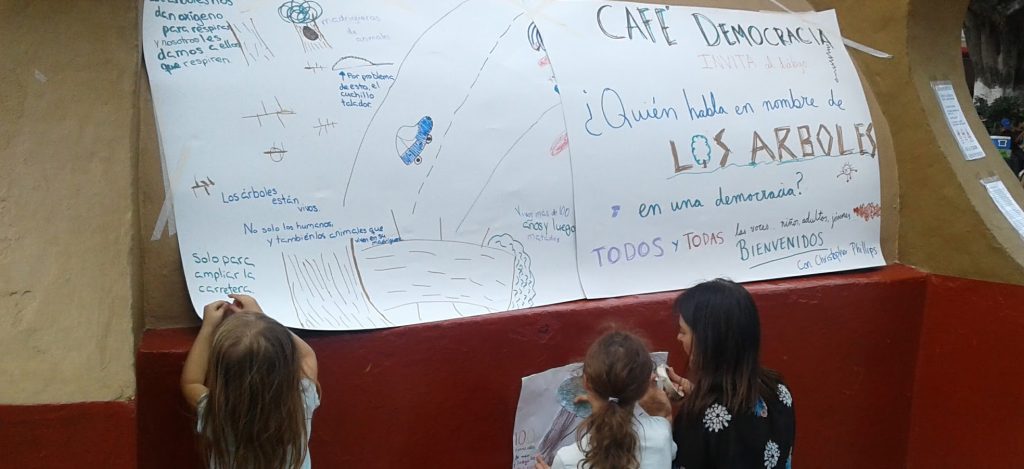The ‘manifestos’ for why Philosophers’ Clubs — Socratic inquiry groups for kids — are coming in fast and furious these days from educators. Well, they’re coming in, and there must be a reason. Perhaps because adults, especially adult educators, are coming to realize that if we’re going to raise a crop of adults-to-be who are unlike our current crop, then we have to give them tools and opportunities that many current adults lack.
I’ve been holding philosophical inquiries, giving workshops and presentations, at Fairfax County, VA, public schools for about 12 years now. The groups I’ve helped establish there continue to thrive.
One school in the Fairfax County Public School that I didn’t realize had established a Philosophers’ Club, until I heard from one of their benefactors, who wrote me out of the blue to say he lauded these inquiries with and among kids, was Cunningham Elementary School in Vienna, VA
I asked their principal, Katie Le, why her school had weaved in Philosophers’ Club as an integral part of the learning experience, and here is her reply:
“Hi Chris,
Here are my initial thoughts for benefits of Philosophers’ Club:
• Builds community – students and teachers, together, strengthen relationships through meaningful shared experiences, and by getting to know each other on levels that surpass more superficial relationships.
• Develops critical and creative thinking skills – participants learn to think deeply about concepts, and to see ideas from a variety of perspectives.
• Builds autonomy in thinking – as students build trust in each other, they become more open to sharing and defending their individual ideas.
• Fosters respect for others – students learn to listen openly to others, they understand it is okay to disagree or see a different perspective, and they begin to share their alternative ideas and question each other in ways that show respect for the other thinkers in the group.
• Cultivates appreciation for differences in backgrounds – as participants support their ideas using personal experiences, they learn about each other’s backgrounds, interests, preferences, etc.
• Deepens curricular knowledge and understandings – as students use learned information to support their thoughts, they apply skills and knowledge acquired in the classroom in a meaningful way.
• Develops self-awareness – students gain skills in hearing others’ ideas, thinking deeply about their own thoughts, and searching for reasons within themselves to support or contradict their own beliefs.
• Improves communication skills – As students share their ideas, over time they develop skills to articulate their thinking, hear others’ ideas, and change their thinking based on input they hear from others.
• Supports language acquisition not only for English language learners, but all students – research states that oral language comes first in acquiring a new language. Philosophers’ Club focuses on oral communication, allowing students from all backgrounds to hear, say, and understand vocabulary in an authentic setting.
Katie Le, Principal, Cunningham Park Elementary School
To which I say: This makes my day, week, month, to know that something I conceived of has resonated and touched a chord with educators and their charges. I hope in the times to come, the Philosophers’ Club spreads farther and wider.

